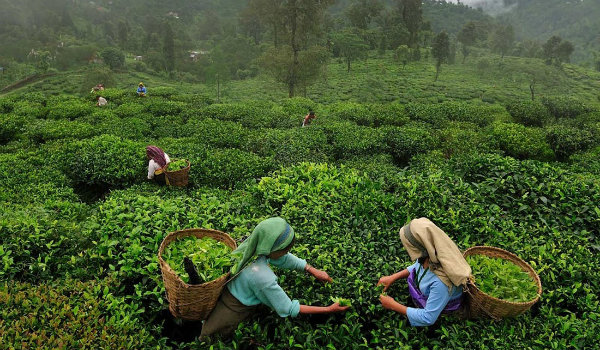RCEP negotiations: Tea sector seeks protection from tariff cuts

BusinessLine | 25 July 2019
RCEP negotiations: Tea sector seeks protection from tariff cuts
by Amiti Sen
The labour-intensive Indian tea industry has sought protection against tariff cuts under the Regional Comprehensive Economic Partnership (RCEP) pact being negotiated by India with 15 countries, including China.
The tea producers, who, unlike their counterparts in sectors such as steel, auto, chemicals and pharmaceuticals, were not invited for discussions on RCEP by the Commerce Minister earlier this week, are nonetheless equally fearful of being swamped by cheap imports from China.
Surplus production
“When the Indian tea industry is trying its best to absorb surplus tea production through boosting exports and generic promotion, it would be foolish to allow other countries to enter our market. Tea should be put in the negative list of the RCEP pact to protect the interests of the Indian tea industry and millions of people associated with it,” Sujit Patra, Secretary, Indian Tea Association, told BusinessLine.
ITA is one of the oldest tea producers and exporters body in India with 425 tea gardens as members providing direct employment to more than 4 lakh people.
Vast scope
The RCEP is a mega trade pact being negotiated between the 10-member Asean, India, China, Japan, South Korea, Australia and New Zealand with a high ambition level, where most members are pushing for tariff elimination on more than 90 per cent of traded goods. This means that tariffs would need to be eliminated not just for industrial goods, but also agriculture produce as very few items will be allowed to be shielded. In India, tea producers are struggling to deal with surplus production which is driving down prices. According to industry figures, tea production in the country in 2018 was 1,312 million kg (mkg), exports were 249 mkg, and imports were 20 mkg, which led to a surplus of 58 mkg. An import duty of 100 per cent is the primary reason why imports are low and not contributing to the woes of the industry, Patra said.
While ITA was not a part of the recent meetings the Commerce Ministry has been holding in preparation for next week’s RCEP Ministerial Meeting in Beijing, where the 16 members are expected to make their positions on market openings clearer, it had given inputs at meetings on RCEP organised earlier this year by the exporters body FIEO and the Directorate General of Foreign Trade (DGFT).
Production cost
Since the cost of production of tea in India is one of the highest in the world due to factors such as high wage structure, high social welfare cost, and high transportation and handling charges, low cost of production in many RCEP nations will enable them to export tea to India at much lower prices, ITA argued.
“We are particularly fearful of China whose production is increasing every year. China now produces black tea which is not liked by the Chinese and is thus looking for overseas markets. India is its first and easy stop. If duties are lowered, it will be very easy for China to dump its excess tea here,” said Patra.
Limited scope for exports
On the other hand, there is limited scope for exports of Indian teas within the RCEP bloc as there isn’t much demand except from China, which already has its own over-production to deal with.
With the Indian tea industry providing employment to over 1.2 million workers directly, Patra said, any disruption will affect livelihoods severely.





